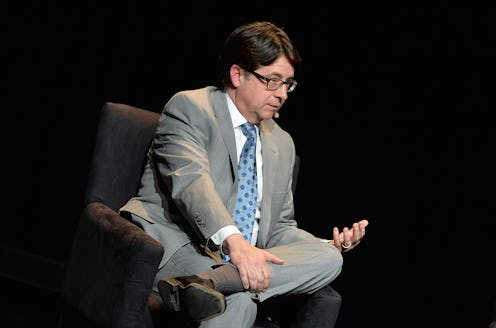News
Strang Explains Why WI Wants Dassey Behind Bars
If you've watched the Netflix documentary series Making a Murderer, then you probably only need to hear the name "Brendan Dassey" to be pulled right back into the case. Dassey was just 17 years old when he was sentenced to prison for being party to the murder of Teresa Halbach, the result of a police confession that was widely criticized as coercive and false. His sentence was overturned last month, but that's not the end of things: this week, Dean Strang explained why Wisconsin wants Dassey in prison, arguing that the overturned conviction not only strikes against the status quo, and thus the state's credibility, but that accepting it would force them to concede a major, horrible mistake.
In case you haven't been following the story as closely recently, Dassey's conviction was overturned on Aug. 12, when a judge ruled that his police confession — which you can see here, in all its unsettling and maddening glory — had been coerced, and was unconstitutional. The Manitowoc County Sheriff's Department has maintained that their interrogation of Dassey followed standard police procedure. Dassey's deadline for release was set at 90 days, or Oct. 12 at the latest, but now it's looking like he's going to remain in prison for even longer, thanks to an appeal filed by Wisconsin attorney general Brad Schimel.
As Jonathon Gregg detailed for Wisconsin's FOX 6 Now, former Steven Avery attorney Strang discussed Dassey's case and the state's appeal during a speech at Marquette, and he gave some of his own insights into why the appeal was filed — and why it doesn't surprise him.
The state often is very interested in preserving the status quo. And the status quo right now is that Brendan Dassey is convicted, he is in prison and this sort of inexorable pressure to keep him there I think, makes it no surprise the attorney general's office sought to appeal. ... It means acknowledging a significant wrong or a mistake, which is hard. It means potentially putting victims through another trial.
The thing is, copping to such a "significant wrong" at this moment in time could be costly for the state as far as public perception goes. For months, wrongful conviction attorney Kathleen Zellner has been stating her intention to successfully exonerate the bigger name to come out of Making a Murderer, Avery himself. She's reportedly been trying to force a new trial, and while Dassey's overturned conviction doesn't necessarily mean anything for Avery in a legal sense, it could help shake loose new witnesses, or inflame a public outcry.
Simply put, with both Dassey's and Avery's cases under a national microscope, the state of Wisconsin is not going to just let its successful prosecutions be undone, no matter how obvious it might seem to casual observers that Dassey's confession was improper, and possibly false. And if Avery ever somehow got his conviction overturned, you can be virtually assured that Wisconsin will appeal that, too.
